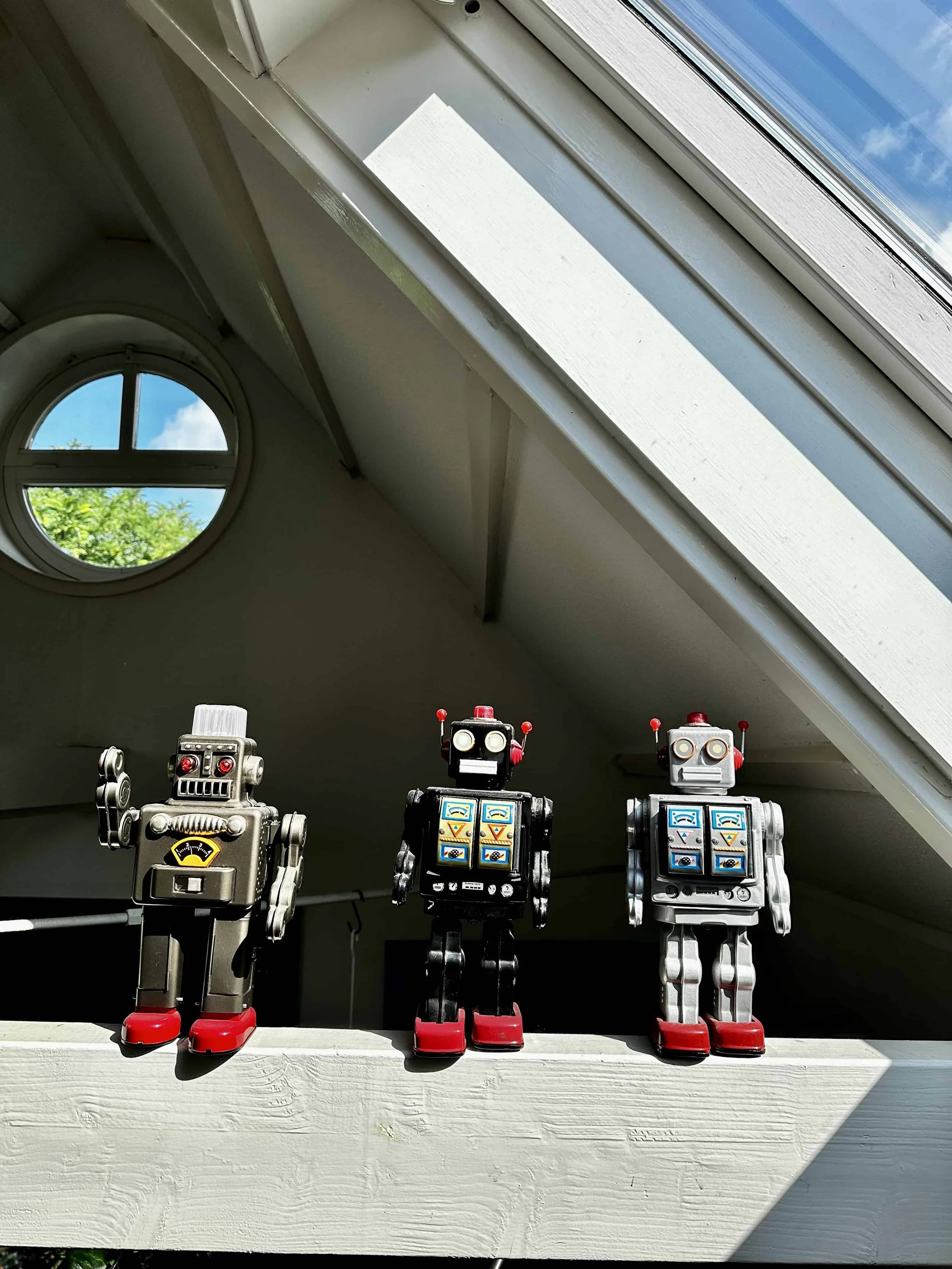Will AI Replace Pattern Makers? A Philosophical (and Practical) Take
Recently, I received a question from someone considering my pattern-making course. They were seriously interested but hesitant—and the question they asked me was this:
"Do you think AI is going to replace pattern makers?"
And listen, I had a visceral response. Not because it was a bad question, but because it's such a deeply philosophical one for me. It hit me in the gut and made me want to unpack it, not just from a technical lens, but from a creative, spiritual, and very human place.
So... Is AI Coming for Pattern Makers?
The assumption behind the question is clear: that AI will, eventually, replace the need for human beings to create sewing patterns.
And in some ways, I get that. It’s not an unreasonable question. We’ve all seen how AI is shifting creative fields—and technical ones too.
So I did some digging.
I researched to see whether any of the major companies—those that already create pattern drafting and grading software—were developing AI tools. So far? As of what’s publicly available, there’s no announced AI that fully automates sewing pattern creation.
And based on how AI is doing in other visual areas—like image generation—we’re probably not there yet. I mean, image generators can’t even consistently render a human hand with the right number of fingers. If it can't distinguish between basic shapes, it’s unlikely to reliably draft well-fitting garments.
It’s Not Just About Capability—It’s About Cost
There's also an economic factor. Developing AI takes serious investment. And right now, many parts of the fashion production process—especially pattern making—are still outsourced to countries where labor costs are low. Hiring skilled pattern makers is still, for many companies, more cost-effective than building expensive AI tools.
So from a purely practical standpoint, the tech isn’t fully developed or economically viable—yet.
But Let’s Go Deeper: What Are You Really Asking?
What really struck me, though, was the subtext of the question. What I heard was:
“If AI is going to replace this skill, is it even worth learning?”
And that’s the part I have a hard time relating to. Because if the only reason you're drawn to a craft is the end result—if you’re only interested in pattern making because it might lead to a job or product—then yeah, maybe that question makes sense.
But for me? It’s never been just about the result
Do You Love the Process?
If you don’t love the process of making—of turning an idea into form—then no, you probably shouldn’t study pattern making.
Just like you probably shouldn’t learn to knit, or paint, or sculpt.
Because this work… it’s not about shortcuts. It’s about the joy and meaning embedded in the act itself.
AI might one day be able to draft a pattern. Maybe even construct a garment. But it will never be able to do it the way you do—with your intuition, your body memory, your creative fingerprint.
To Create Is to Be Human
Here's where I get a little spiritual with it.
There’s this idea that we’re made in the image of God—not just in appearance, but in essence. If God is a creator, then we are, too.
I’m not religious, but that hits deep for me. There’s something divine about creating, about pulling a concept from the ethers of your imagination, turning it into a pattern, cutting it from fabric, and then wearing it or watching someone else wear it.
That process? It’s sacred.
It’s not just technical. It’s transformational.
What Happens When AI Does Show Up?
Let’s say AI does get really good. What then?
Well, we can look to other fields, like coding. Tools like ChatGPT can already write code, sure. But unless you understand the language of code, you can’t debug it. You can’t direct it. You can’t fix it when something’s off.
The people who benefit most from AI tools are the ones who already have the skills.
So if/when AI pattern-drafting tools become available, guess who’s going to use them best?
Pattern makers.
People who already know the process. Who understand the difference between a good and bad pattern. Who can spot fitting issues before they even happen.
FINAL THOUGHTS
So no—I’m not afraid of AI.
If anything, it makes me even more grounded in what I do. More inspired to keep teaching, learning, and making. AI might enhance the process. It might make parts of it faster or easier.
But it won’t replace the soul of it.
And it won’t replace you.
So if you’ve been feeling unsure, I hope this gives you peace. Your craft, your skill, your imagination—it all still matters.
It always will.



